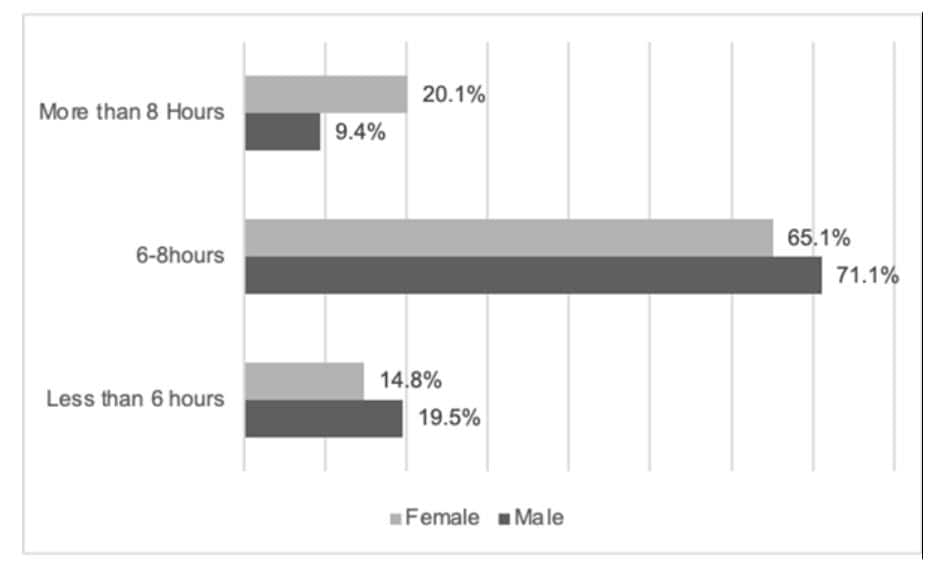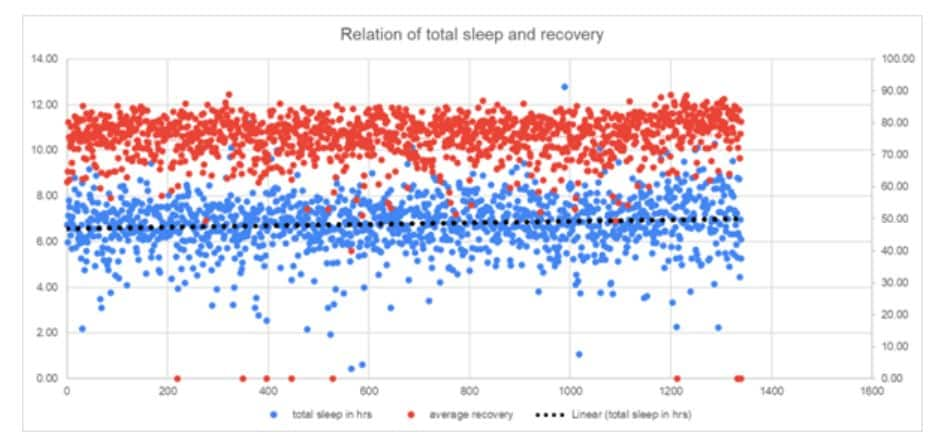Sleep is essential for maintainingand overall Despite its importance, many people fail to get the recommended amount of rest each night. A FITTR study of 1,340 wearable device users has provided insights into sleep patterns, stress levels, and their connection to overall health. The findings highlight widespread sleep deprivation, gender differences in sleep duration, and the impact of sleep on and .
Here we explore the key takeaways from the study and how sleep quality affects health.
→ Over 87% of participants slept lesser than the recommended 8 hours per night.
→ Nearly 20% of users slept fewer than 6 hours, putting them at risk for
→ On average, women slept, while men averaged
→ This aligns with previous studies that show women tend to have longer sleep durations than men.
Individuals who slept longer, especially in deep sleep, showed
→ Deep sleep plays a crucial role in , and
→ Participants with shorter sleep durations reported
→ The study confirmed that inadequate sleep increases stress, creating a cycle of
Chronic sleep deprivation was associated with increased risks of:
→ Heart disease
→ Cognitive decline
→ Impaired physical performance
→ Higher likelihood of obesity and diabetes
→ Older adults (50+) had shorter sleep durations, averaging 6.2 hours per night.
→ This trend is linked to a higher risk of chronic illnesses.
During deep sleep, the body repairs tissues, balances hormones, and strengthens the immune system. Poor sleep can lead to:
→ Slower muscle recovery
→ Increased fatigue
→ Reduced energy and endurance
Lack of sleep contributes to anxiety, depression, and increased stress. The study found that:
→ Sleep-deprived individuals were significantly more likely to develop anxiety and depression.
→ Chronic stress further reduces sleep quality, creating a negative cycle.
→ Sleep deprivation increases inflammation, which is linked to heart disease and metabolic disorders.
→ Poor sleep weakens the immune system, making individuals more vulnerable to illnesses.
For better sleep and overall well-being, consider these strategies:
→ Maintain a consistent sleep schedule: Going to bed and waking up at the same time daily helps regulate the body’s internal clock.
→ Limit screen time before bed: Blue light from screens interferes with melatonin production.
→ Create a relaxing bedtime routine: Activities such as reading or meditation can improve sleep quality.
→ Ensure a comfortable sleep environment: A cool, dark, and quiet room promotes restful sleep.
→ Avoid caffeine and heavy meals late at night: These can disrupt sleep patterns.
Sleep is a crucial component of overall health, influencing everything from physical recovery to stress levels. The study highlights the widespread issue of sleep deprivation, gender-specific sleep trends, and the importance of quality rest for well-being. Addressing sleep issues through better habits and lifestyle adjustments can significantly improve health outcomes. Prioritizing sleep is essential for maintaining a balanced and healthy life.
Stay informed on all the , real-time updates, and follow all the important headlines in and on Zee News.










